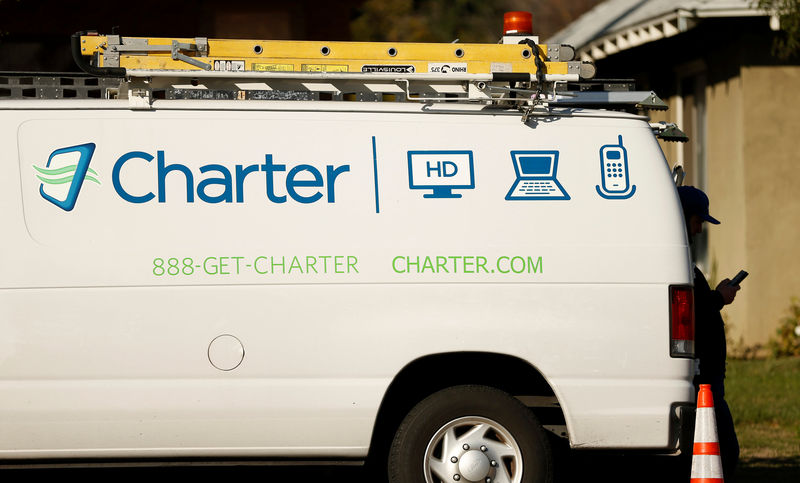By Sam Boughedda
Charter Communications (NASDAQ:CHTR) held the first investor event yesterday with its newly appointed CEO, Chris Winfrey.
Charter shares have tumbled almost 11% following the event.
Analysts at Truist, Deutsche Bank, and RBC Capital Markets provided their thoughts after attending:
Truist analysts maintained a Hold rating and $380 price target on Charter shares, telling investors, "the company disclosed an increased capital intensity cycle (+$5.5 billion), as expected, as it defends against fiber and fixed wireless."
"While historic cable upgrades have advanced tech beyond its competitors, with the segmentation of the market (not all want 1G), gone are the days when cable captures the majority of subs growth flow share. In fact, as the market continues to be fragmented, we expect CMCSA (Hold) and CHTR could lose subscribers for a time," added the analysts.
RBC Capital maintained an Outperform rating on the stock but lowered the price target to $460 from $480, stating Charter's investor meeting "provided an attractive outlook for its network evolution, footprint expansion, converged go-to-market strategy, and efforts around improving the customer experience."
"We are highly encouraged that the target cost to upgrade the network is only ~$100 per passing ($5.5bn in total; multiples lower than feared just a few months ago) and that early rural builds have seen ~40% penetration after only six months. That said, the impact to broadband subscriber growth and ARPU could take years to fully manifest, and in the meantime this spend is driving a new capex cycle through 2025 that will pressure FCF and buybacks," added the analysts.
Finally, Deutsche Bank maintained a Hold rating and a $465 price target on Charter shares. Analysts said: "Much of the investor event centered around explaining Charter's three phase network evolution/investment plan in which the company is upgrading 15% of its footprint to 2/1 gbps downstream/upstream in '23, another 50% to 5 gbps down starting in '24, and DOCSIS 4.0 in the remaining 35% of the footprint in late 2024 (delivering 10 gbps downstream)."
"The end result is planned to be that more than 85% of Charter's footprint will be capable of up to 5 gbps downstream service by the end of 2025. Most notably, management expects to achieve this plan with a cumulative cost of $100 per home passed whilst avoiding a portion of the normal course access network augmentation work, especially node splits. This cost target was noted by management as aggressive, but attainable due to Charter's scale and vendor relationships, with the intention to purchase equipment upfront."
